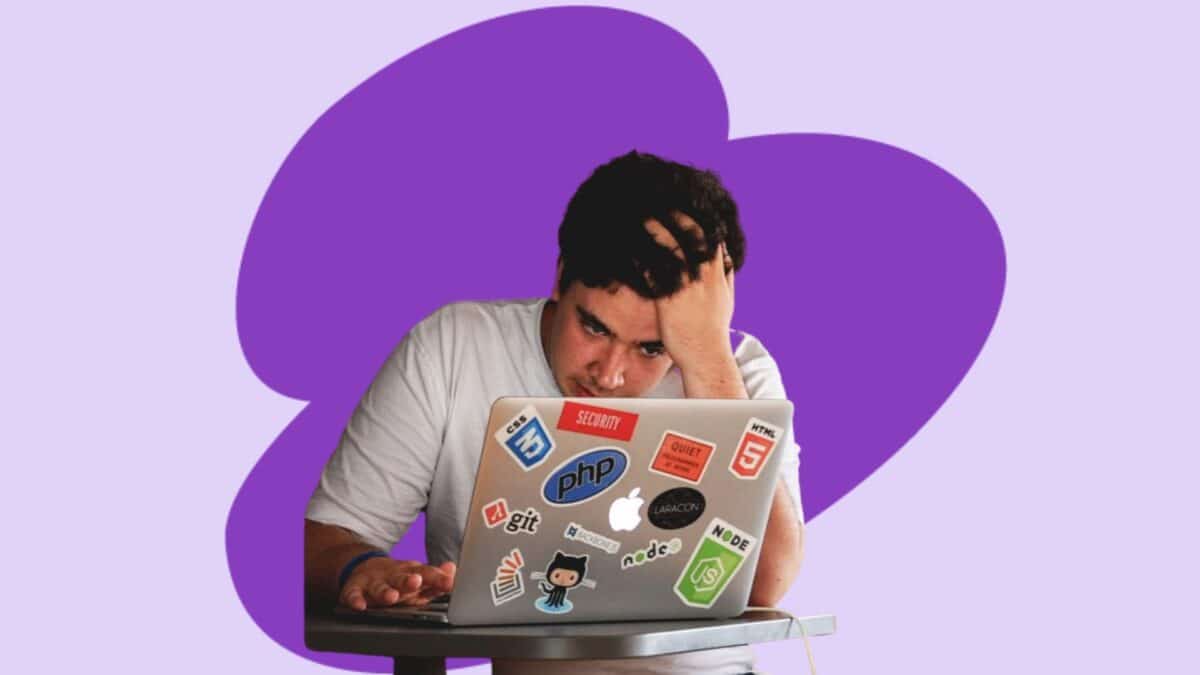We like to think that we know everything there is to know about teenagers. Heck, we were teens once! It might also feel like we’re fresh out of high school ourselves, but the reality is that we are adults now. We don’t know the trends (even when we try SO hard to keep-up), and we don’t know what teens are going through these days. The landscape of school has changed dramatically — and we can’t even BEGIN to fathom what growing up with social media is like, or what its effect is on teen mental health. Many of us young adults were just on the cusp of the social media revolution! But teens these days have grown up with so much more than just AOL and MSN.
The reality is that we know nothing about teens and their mental health. They’re more aware and open about their mental health than any generation before them! And, even though we might think that we’re hip and ‘with the times,’ we actually have no clue what’s going on. But that’s why we’re here today! We’re here to share with you the ultimate guide to teen mental health!
Most Common Mental Health Challenges Teens Face
Teenagers today are faced with a unique set of challenges that many of us have never had to think about when we were growing up. The internet has grown and expanded far beyond Ask Jeeves and MSN Messenger. Now, there are a billion and a half social media sites and there’s constant texting to keep up with your friends 24/7, school work that no adult knows how to do because it’s so complicated, and a planet that doesn’t stand a chance against humanity. All of that, plus the general — and social — pressures of being a teenager…it all really SUCKS! It’s seriously amazing that not every single teenager out there is struggling with their mental health!
If it’s been a few years since you were in high school…well, the world has changed, dear friend! It’s a whooooooole new landscape in those middle school and high school halls! But, if you are wanting to understand teen mental health (or if you’re a teenager looking to help yourself), you’re in the right place! We’re covering as many things as we possibly can in this article, so get ready for some reading!
Depression in Teens
Who here has been personally victimized by depression?
Yep, us too! It’s no surprise that a kid between the ages of 12-17 could have a depressive disorder, because think about it — how could they not these days? Having depression as a teenager can be really scary! And, it’s difficult recognizing and managing such intense emotions, so the depression can begin impacting other parts of their life.
Depression in teens can manifest in many different ways. Maybe they begin to pull away from their friendships. Perhaps they have become really apathetic to everything. They might run away from home as a cry for help. Or, maybe they’ve become addicted to their phone in order to escape their own reality. (And, it’s hard to cope with depression when you might not even know that you have it!)
It’s important that parents keep an eye out for any problems at school that might come up. This can include problems with concentration, attendance, or a drastic and sudden drop in grades. Teenagers also might try to self-medicate with drugs and alcohol. It’s normal to expect teens to experiment with this (ahem…we may or may not have), but keep an eye on it so that it doesn’t become an unhealthy way to cope. Reckless behaviour like sex, drugs, alcohol and self-harm are all ways that teenagers might try and manage their depression.
Depression can impact so many other aspects of a teen’s emotional health. It can play into lowering their self-esteem, make them more violent and reactive, aggravate eating disorders and encourage suicidal thoughts. It’s so much more than just feeling sad! So, don’t be afraid to do the “un-cool” thing and ask to see a doctor for help.
Anxiety in Teens
Coping with anxiety as a teenager is not even remotely easy! The body’s fight-flight-freeze response is so visceral that it can be terrifying to even just FEEL anxious! Think about it, your body reacts in such new and intense ways that it’s only normal for a teen to have a hard time coping with it.
Anxiety in teens can manifest in a number of different ways. And, to be fair, how could it not? Think about everything that teenagers have to face! They have the pressure of school, they have to cope with the environment slowly collapsing, AND they worry about university or the future, they might develop health anxiety and might struggle to understand intrusive thoughts. Not to mention trying to cope with family struggles AND (to top it all off) school.
This anxiety can interfere with a teenager’s ability to socialize, impact their attendance and grades, and impact their sleeping schedule. As a teenager, it can be intimidating to tell your parents, friends, teachers or anyone you trust about your anxiety. It can feel like you’re losing your mind, you’re on edge constantly and feels like your heart might drop out of your butt at any moment! Okay, maybe not that EXACTLY, but you know what we mean.
Other Symptoms:
Here are some things that adults, teachers, parents and teens can look out for to help recognize anxiety:
- Irritability
- Apathy
- Feeling on edge
- Difficulty concentrating
- Avoiding social interaction
- Gastrointestinal issues
- Fatigue
- Changes in eating habits
- Frequent headaches and migraines
- Aches and pains with no source
- Sleep problems
- A drop in grades
- Panic attacks
Okay, so that’s a lot to look out for, but anxiety can manifest soooo many different ways in the body. Unfortunately, people with anxiety can also turn to substances to numb the fear and intense symptoms they experience. So if you’re a parent, adult, guardian, or loved one of a teen that has anxiety, keep a close eye on any substance use in order to make sure that they don’t put themselves in harm’s way.
Anxiety can also impact other areas of one’s mental health, so be sure to keep an eye out for anxiety’s two common companions: depression and eating disorders. These three seem to like travelling together (which is very rude in our opinion).
Eating Disorders in Teens
Eating disorders aren’t easy to manage on your own. They also don’t manifest only to lose weight. While that is a primary motivator for many people, it’s not always the case. They’re hard to break down and hard to recover from! Did you know that more than 90% of people with an eating disorder are girls? That’s not to say that people of other genders and ages don’t experience them — eating disorders affect everyone. But, here are some common eating disorders to watch for in teens:
- Anorexia nervosa
- Bulimia Nervosa
- Binge-eating disorders
Anorexia is when people restrict their food intake so severely that they lose weight. Bulimia is when a person binges on food and then vomits after eating. And, binge-eating disorders are when a person overeats with little control. Additionally, there are other ways that someone might maintain an extreme diet. For example, someone can use laxatives or hours of intense exercise to hide (and foster) their eating disorder with more secrecy.
Signs To Look For:
The thing about eating disorders is that they’re easy to hide. People trying to cope with them often deny that anything is wrong! They hide it soooo well that it’s hard to detect when someone is in distress and facing difficulties with food. But there are some common signs of eating disorders that you can look out for:
- Body image struggles
- Frequently skipping meals
- Binging
- Frequent weight checking
- Drastic and extreme weight change
- Constipation
- Poor dental health (cavities, erosion of tooth enamel)
- Hair loss
- Dry skin/rash
If left untreated, eating disorders can lead to serious health conditions. People can suffer from early bone loss, kidney disease, heart disease and even death.
Imposter Syndrome
Welcome to the section that may or may not make you feel like you’re being #attacked. Jk — but also not really because this applies to us too. Imposter syndrome is when you feel like you’re not worthy of all of your success, or that your accomplishments are deserved.
This isn’t something that just impacts career-focused individuals who feel like they’re faking their way to the top. This can also be true for students who have a lot of accomplishments academically and in extracurricular activities! They might feel like they are unsure of their decisions, feel self-doubt related to their work, or even feel like their rewards for their work were because of some kind of mistake. All of these emotions and feelings can lead to, or be influenced by, depression and anxiety.
Comparison
Social media has us playing the comparison game each and every frickin’ day! UGH! This is especially true for teens because they’ve grown up in a world where their appearance online is everything. How many followers do you have? How many likes? Or how many views? How hot do you look? There has NEVER been a time in their lives where comparison wasn’t a thing.
Comparison, especially online, has been shown to decrease a person’s mental well-being. This can lead to a decreased sense of self-worth, self-esteem and confidence. Social media — and comparing oneself to others — can begin to feel more like a competition (rather than time mindlessly scrolling to catch up on your friends’ lives). This can lead to anxiety and depression in teenagers who spend significant amounts of time online and on social media.
Neurodevelopmental Disorders
Try saying neurodevelopmental disorders ten times fast! It’s definitely a mouthful…but what does it mean? Neurodevelopmental disorders are disabilities related to brain function that impact a person’s behaviour, memory, or ability to learn or retain information. ADHD, autism spectrum disorder (ASD), dyslexia and other learning deficiencies fall under this umbrella.
ADHD
ADHD (a.k.a. attention-deficit/hyperactivity disorder) is a struggle to manage on its own. Signs and symptoms of ADHD typically begin appearing in early childhood but can change as a person grows! The core symptoms of inattention and impulsivity (and sometimes hyperactivity) remain but often change in presentation as children age. They become more subtle and less noticeable to those around them, but other symptoms related to executive functioning may appear.
Annoyingly, ADHD doesn’t like to run alone. Ohhh no! It likes to hang out with other mood disorders like anxiety and depression. Sadly, 10-40% of teens with ADHD also have anxiety, and many have depression as well. It’s not uncommon for teens with ADHD to also struggle with learning and communication, as well as the levelling of emotional responses. Soooo, basically, they have to deal with a lot going on in their heads. Oof!
Because of this, kids with ADHD are 2-3 times more likely to abuse alcohol and drugs than kids without it. Their brains are working overtime ALL the time, so when something comes along that calms them down it feels sooooo amazing. But that’s the exact problem. Unfortunately, this makes a teen with ADHD so much more susceptible to addiction.
Autism Spectrum Disorder (ASD)
A person with autism used to be labelled as either ‘high-functioning’ or ‘low-functioning.’ ‘Aspergers’ was used to identify high-functioning patients. And, low-functioning patients were often just identified as ‘autistic.’ Today, the concept of high-functioning vs. low-functioning is no longer valid, and instead Autism is now treated as a spectrum disorder. So, a person with ASD can live anywhere on the spectrum, which means that their symptoms and coping strategies can differ greatly from another person with ASD.
Here are just a few (but not all since they differ for each person) defining features of ASD:
- Difficulties with communication and socialization
- Deficits with nonverbal communication and actions (like not making eye contact)
- Struggling to understand and develop relationships
- Repetitive behaviours
- Hyperfixation on interests
- Preference for stability in scheduling and being reluctant, or extremely averse, to changes
- Sensitivity to sensory things like sounds, lights, noises, textures
There are many mental health issues that can accompany a diagnosis of ASD. Unfortunately, it’s a disorder that comes with a lot of extra friends that want to come along for the ride including, anxiety, depression, obsessive-compulsive disorder (OCD) and ADHD.
People with ASD face a unique and difficult problem compared to many of us, so caring for their mental and physical wellness on a regular basis is super important!
Oppositional Defiant Disorder
While it is normal for teenagers to defy their parents and rebel to some extent, this isn’t what we’re talking about. If you’re a parent reading this, don’t automatically go and take your kid’s phone away and lock them up in a tower Rapunzel-styles as a way to keep them out of trouble. Oppositional Defiant Disorder (or ODD for short) is characterized by:
- Extreme defiance
- Struggle to maintain healthy relationships
- Angry or resentful attitude
- Argumentativeness
- Vindictiveness
It can be difficult to know the difference between a strong-willed, or stubborn, teenager and one that has ODD. The best course of action is to talk to your doctor or mental health professional about the struggles your teenager is having so they can help to balance some things out.
5 Ways to Help Your Teen
Chances are that you’re not a mind reader. (You might be! We don’t know. We’re just rolling with statistics here!) And, if you’re not a mind reader, you likely don’t KNOW what your teenager is thinking or what they need. You can guess…but you’ll never for sure know.
If you don’t know where or how to start connecting with your teenager about their mental health, here are some initial steps that you can take…
1. Foster Open and Honest Communication
A lot of teens have a hard time coming to their parents to talk about the hard things. Remember having to talk to your parents about something you were anxious about? You were probably scared shitless! And, did you feel like they created an open and caring environment for you to express yourself within? Probably not!
Be the parent/guardian to your child that you (maybe) never had and always wanted. Create a space that allows your teenager to feel safe talking to you about really scary and hard things! They don’t know how to navigate all of this on their own. They’ll need guidance, love and non-judgemental help. Be the one to do that for them.
2. Watch For Changes in Behaviour
As we’ve discovered together, mental health issues can manifest and present in a number of different ways. Unless you’re an actual mental health professional, we don’t expect you to recognize all the behavioural changes that come with each and every mental health issue. But just watch for abnormal behaviour. It’s okay for your kids to have an off day! But if it’s something that you’re noticing consistently, it might be time to gently and lovingly step in.
3. Don’t Shame Them
Kids often don’t tell their parents what they’re going through because they don’t want to hurt them or feel ashamed for what they’ve done. For example, many teens hide self-harm practices from their parents because they don’t want them to get angry and find out. Self-harm is often a way to create physical pain that mirrors the psychological pain someone is dealing with because physical pain is easier to understand and much more accepted by society.
You want your kid to be safe, understood and accepted, right? Right! So, even if they are using self-harm as a coping mechanism, don’t get mad at them or make them feel ashamed for what they’ve done. Tell them that it’s okay, you love them, and that you’re there to help. Maybe that means finding a safe way to cope with what they’re going through! Just don’t make them feel shitty about it because they’re already going through so much.
4. Counselling
It’s never a bad idea to get on the counselling bandwagon. (Heck — a few of us at DiveThru have been in and out of counselling/therapy since elementary school. Those developmental years are CRUCIAL.) Mental health professionals can often be the guide that teenagers need when they’re first navigating their mental health. They can be the neutral third-party to your family discourse, or a safe (and confidential) sounding board for your teen in private sessions.
5. What To Say When Your Teen is Struggling
It’s hard to know what to say when someone is going through some hard shit in general. But if it’s a teenager that you have a strong love and connection to, knowing what to say might feel as tricky as walking on eggshells.
Here are some things that you can say to help your teenager when they’re facing a challenge with this mental wellness.
Validate their feelings:
“That sounds really hard.”
“What you’re feeling is okay.”
“Ya, that does sound really hard!”
“You’re trying really hard and I’m sorry that it’s not working out well.”
“I see how much effort you’re putting in. I understand that you’d be upset by that.”
“Don’t apologize for how you feel! I’m here to help you. Let’s get it out together.”
Offer support:
“Do you want me to listen or do you want my advice?”
“I’m here for you — always.”
“How can I help you?”
“What can I do for you to help you in this moment?”
Show that they can trust you:
“Thank you for telling me.”
“Thank you for sharing that with me. That must’ve been really hard.”
“This can stay just between us if you want.”
5 Ways to Help Yourself If You’re A Teen
Hello fellow teenager! Just kidding. We’re not kids anymore. Maybe we are in our minds but we have definitely been out of the game for a while now. But, we DO know that it’s hard to know where to start helping yourself with your mental health. So, that’s why we’re hereeeee! Here are 5 ways to support your mental health and ask for the help you need…
1. Talk to your parents
This is probably the hardest step you’ll have to take. You might be hesitant and afraid to talk to them for a number of reasons and we totally get it! But talking to your parents is the first step towards getting help for your precious brain.
It’s important to be honest with them about how you’re really feeling. You can start this conversation with something like “Hey, can we talk right now? I could really use your help.” That helps set the tone for the rest of your conversation to come!
2. Talk to school counsellors
If you don’t feel comfortable, or safe, talking to your parents then you can talk to a school counsellor (or a teacher that you really trust). Sometimes teachers can be the guiding light that you need when you’re in the midst of your mental health struggles. They’ll be to help you find resources and help.
3. Call a crisis line
If you’re in serious need of help and don’t know where to turn, a crisis line might be your best option! There are trained professionals on the other end of the phone that are there to help you. And a lot of the organizations have text and/or instant messenger options if you don’t feel comfortable talking to someone on the phone.
Linked here is a list of international suicide and emergency hotlines for you to call based on where you live in the world.
4. Journal
You face a lot of stress day-to-day. Okay, that’s a massive understatement! Teenagers and stress are basically two things that go hand in hand. Your world (and body) is constantly changing and it’s a ton of pressure to handle!
Soooooo, if you’re one of the many teenagers facing a crap ton of stress and don’t know where to put all of your emotions, journal it out! It can be so cathartic to have a safe and private space to put your thoughts and feelings. It can also help you explore your emotions and better understand yourself.
5. Therapy
Accessing therapy can be hard. There can be a lot of barriers that keep someone from taking care of their mental health, and being able to afford therapy is one of them! If you feel comfortable, talk to your parents, a teacher, counsellor, or another adult you trust to help you find therapy options that you can access.
How to Help Your Friend
If you have a friend who is struggling with their mental health, we’ve got you covered. If you’re a teenager looking to help your friend, it can be difficult not knowing where to start or what to do.
Here are some things that you can do to help a friend who is struggling with their mental health…
1. Listen
If your friend comes to you saying that they need help, listen to what they have to say. It’s taken a lot of courage for them to come to you and ask for help. They might be telling you stuff that they’ve kept to themselves for months, or feel uncomfortable finally sharing the shit they’re going through. You don’t know what they need, so take the time to listen with intent and love (no judgement). They could especially use a lot of that love that only friends know how to give!
2. Validate their feelings
Tell them that what they’re going through is really hard. It sucks! It’s not easy! Tell them that they have nothing to be ashamed about and that you’re right by their side to help them every step of the way.
Sometimes, being told that it’s okay to feel a certain way can feel like a warm hug. It’s reassuring and caring, and most importantly, tells them that how they feel in this moment is valid.
3. Ask how you can help
Sometimes people just want someone to talk to and other times they want your help with a situation. They might not know what to do about their situation or where to start looking for help. Your friend might be in the middle of a panic attack and not be able to get what they need to calm themselves. Asking how you can help shows that you’re there to support your friend and be there for them when they need you most. Sometimes they might just need you to physically be there (sitting beside them) for support when they sit down with their parents to have a hard conversation.
4. Have the hard conversations
If you’ve noticed your friend has been abusing substances in an unhealthy way, talk to them about it. Don’t call them out in a nasty way or anything, but gently mention that you’re worried about how much they’re smoking or drinking to cope with whatever is going on.
These kinds of conversations can help save a person’s life. And even though it might be hard in the moment, talking about a person’s self-harm, drinking, or drug usage can help them live a long and happy life.
5. Help them find resources
When people are in the midst of a mental health struggle, even Googling resources can feel extremely overwhelming. Be their Google!!! You can help them by searching for resources they need and then doing the legwork to call and book the appointment for them (and maybe even come with them to the appointment).
Obviously, don’t do this without your friend knowing. Take the time to sit down with them and discover together the options that they can take.
Where to Find Mental Health Help and Resources
It can be difficult to know where to start looking for mental health resources if you’ve never been to therapy before! Google can seem like an endless amount of information that does and doesn’t give you the kind of information that you need. But we’re here to make your life just a liittle bit easier by giving you some resources to use as you begin your mental health journey!
For Parents:
- What You and Your Child Need To Know About Anxiety: Anxiety can be scary and difficult to navigate if you don’t know what the heck is going on in your body! This guide from Anxiety Canada is a great educational resource.
- Parents Medication Guides for ADHD, Bipolar Disorder and Depression: These medication guides are designed to help parents learn about treatment options for kids and teens with differing mental health struggles.
- Jed Foundation: This foundation works to promote mental wellness to help prevent suicide amongst college and university kids. It was created to help parents recognize signs and symptoms of mental health struggles.
- Kelty Mental Health Resource Center: This website has numerous resources for both adults and teens relating to mental health and wellness.
For Teens:
- Teen Mental Health: This website is designed for teenagers to access information and tools on different mental illnesses (and includes videos and resources for parents and caregivers).
- National Eating Disorder Association: NEDA has resources for those with eating disorders, their parents, friends, and wider family members.
- Teens Health: This site provides a safe place for teens who need (and deserve) honest and accurate information. Teens health has many resources for several health-related issues including mental wellness.
OOF! Was that enough information to help fill up every nook and cranny in your brain? Whether you’re a parent or a teen, we’re proud of you for taking the time to read up on how to help yourself or someone you love. Learning to navigate the world of mental health is difficult when you’re so young and don’t know where to look for help. So, we’re proud of you and excited for your next steps in the mental health journey that’ll take you to better and brighter days! Because you deserve all the love and happiness in the world!






